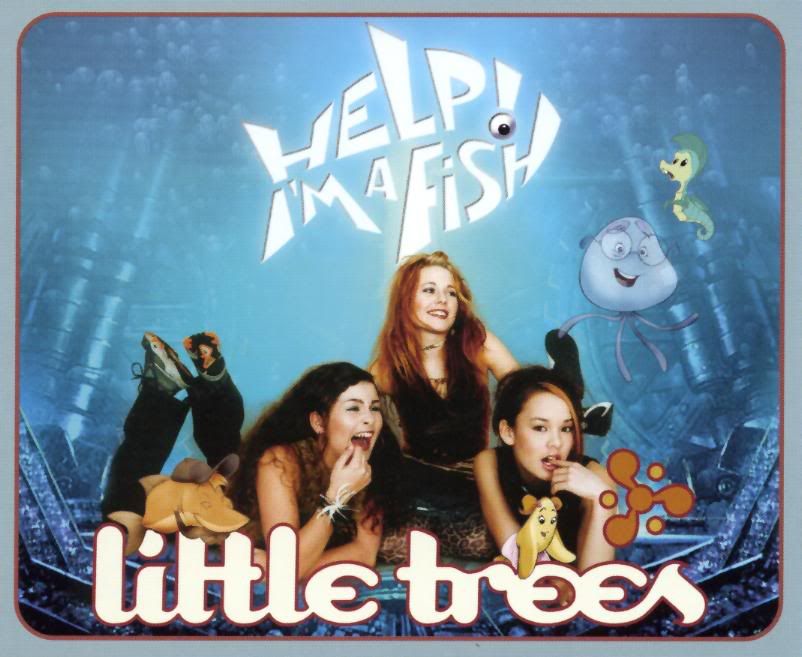FOP SYMPOSIUM 2005: REVIEW #12
Although our Symposium is really a blogger round table, we thought that, given the high-minded subject matter of "Help, I'm A Fish! (I'm a Little Yellow Fish)", we needed someone with some format of specialised knowledge in the field of fish to speak to the "work". So we asked our dear friend Simone, currently finishing a doctorate in Anthropology with a particular interest in fishing communities (and an undergrad zoology background to boot), to weigh in. "You won't put my real name though, will you? It just could be really professionally embarrassing," she insisted. "Oh VERY WELL," we said. (Where did this whole thing begin? Answer: here.)
REVIEW/INTERPRETATION BY SIMONE, PH.D. CANDIDATE
As a zoologist I find it curious that the little fish can speak and can critically assess its plight. I will overlook this aspect of the fish’s ‘story’, however. I will address the fish’s concerns in two parts (though not in the order that the fish introduces them).
The first pleading bleat of ‘I’m a little yellow fish!’ is likely to be a comment about the politico-environmental concerns of the fish. This little yellow whistleblower is speaking up on behalf of her fellow fishes*. The proceeding, additional comments, ‘I’m a little yellow fish,’ ‘in a deep blue sea,’ are no doubt related to the habitat concerns of this small, sentient creature.
To be a little yellow fish adrift in a big blue sea is an unfortunate position to be in, assuming the yellow fish is an adult. If this is the case, our little yellow is in big trouble and she knows it. Fish that reside in the open ocean are never yellow. Yellow can too easily be seen by predators from the sky and the sea. Normally an open ocean dwelling fish will have a beautiful deep blue-black back and a silver-white belly. The fish’s inky back blends into the blue of the sea so that it is camouflaged from above while its silver-white belly camouflages the fish from predators lurking below. Have you noticed that looking up to the sky through water looks like glittering silver? Of course if the little fish is a baby fish, and more like a little-yellow-fish-to-be then she is quite safe, although understandably scared. At this stage in her life she would be transparent and only just visible to the eye.
I assuming that the first part of the song’s title ‘Help, I’m a fish!’ is not a call for help of the existential variety, and is related instead to more quotidian concerns. I interpret this cry as a cry for environmental justice (well line up fish!). Sadly, the fish knows that the soothing sea she swims in is slowing becoming a large toilet. In fact, I would suggest that she has left her usual inner coastal habitat to escape this torment but instead found herself in other difficulties (discussed above).
* We have one fish and many fish. When we refer to many different species of fish we say fishes.



1 Comments:
i was thinking, zoologist phd candidate maybe, linguist no. But it seems you are right (wikopedia via reference.com)
Note on usage: "fish" vs. "fishes"
"Fishes" is the proper English plural form of "fish" that biologists use when speaking about two or more fish species, as in "There are over 25,000 fishes in the world" (meaning that there are over 25,000 fish species in the world). When speaking of two or more individual fish organisms, then the word "fish" is used, as in "There are several million fish in the species Gadus morhua" (meaning that G. morhua comprises several million individuals). To see both in action, consider the statement "There are twelve fish in this aquarium, representing five fishes" (meaning that the aquarium contains twelve individuals, some of the same species and some of different species, for a total of five species). The usage of the two words is similar to that of the words "people" and "peoples".
Post a Comment
<< Home